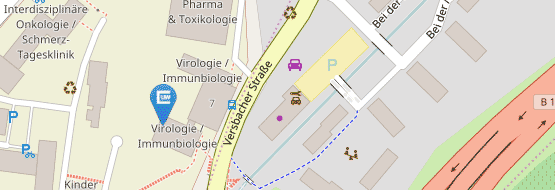Project P09
Personalized medicine – Risk stratification and prevention of HCMV-related disease in transplant patients based on MHC-I-ligandomes
Dr. Sabrina Kraus & Prof. Dr. Hermann Einsele
With the introduction of Letermovir, early-onset HCMV reactivations have become rare. In contrast, late-onset HCMV reactivations have become a frequent cause of HCMV disease. Early identification of patients with an insufficient cellular immune response to HCMV would allow for individualized antiviral prophylaxis and improve patient outcomes. To study development and functionality of cellular immunity to HCMV in these patients, we will continue expanding our biobank of alloSCT patients at the University Hospital Würzburg. We will test the hypothesis that T-cell dysfunction is the main cause of late-onset HCMV disease by studying changes in T-cell functionality (senescence, anergy and exhaustion) over time at single cell level. During the first funding period, we identified HCMV-specific T cells recognizing novel epitopes from both canonical and cryptic viral gene products expressed in fibroblasts. However, CD8 T-cell priming against HCMV is thought to be predominantly mediated by cross-presentation. In collaboration with P01, P04, P07 and Z01, we will study novel candidate epitopes identified by MHC-I ligandome analysis from dendritic cells (direct vs. cross-presentation). Furthermore, we will determine the long-term contribution of third-party T cell transfer to the adaptive immune response by analyzing their expansion, persistence and HCMV-specific functionality. Finally, we will study antibody-dependent cell-mediated cytotoxicity (ADCC) and NK-cell reconstitution in alloSCT patients (with P08). We will elucidate the role of blocking antibodies to the three viral FcγR antagonists and assess their therapeutic potential to prevent HCMV disease in alloSCT patients by reinstalling ADCC. We see a great potential in the proposed work for a more personalized preemptive therapy, diagnostics and thus prevention of HCMV disease in alloSCT patients.

